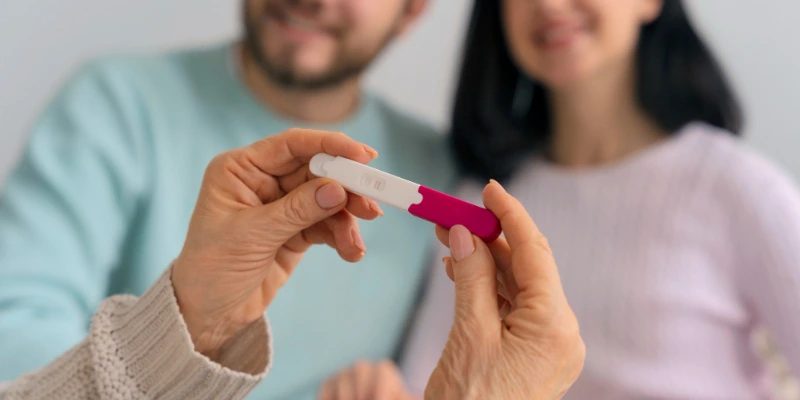What Affects IVF Success Rates? What You Should Know
All over the globe, millions of couples have found hope through in vitro fertilization (IVF). Even though IVF can help many couples have children, there is no sure success with each case. A number of people begin IVF expecting that everything will go well right away, but it turns out that the results depend on several factors.
If you either want to do IVF or are already in treatment, learning what has an impact on your chances allows you to make smarter decisions. Make sure you read up on IVF success factors if you hope to get start-to-finish care from Dr. Archana Agarwal and her respected fertility team in Bangalore.
1. Age of the Woman
Age is by far the most significant factor influencing IVF success. Female fertility naturally declines with age, especially after 35.
Success rates by age (approximate):
- Under 35: 40-50%
- 35–37: 30-40%
- 38–40: 20-30%
- Over 40: 10-20%
Why? As you age, both the quantity and quality of your eggs decrease. Older women are also more prone to chromosomal abnormalities, which can affect embryo implantation and increase miscarriage risk.
2. Quality of Eggs and Sperm
Even if you're young, poor egg or sperm quality can reduce the chances of fertilization and embryo development.
Egg quality issues can result from:
- Hormonal imbalances
- Endometriosis
- Polycystic ovary syndrome (PCOS)
- Age-related decline
Sperm quality (motility, count, morphology) also plays a crucial role. In cases of male factor infertility, procedures like ICSI (Intracytoplasmic Sperm Injection) may be used to enhance fertilization rates.
3. Embryo Quality
Progress in embryo development is very important for achieving success in IVF. Top-quality embryos are usually capable of becoming implanted and starting a healthy baby.
Dr. Archana Agarwal’s clinics use advanced methods to ensure that the best embryos are used, thus raising the chance of success.
Some people might choose Preimplantation Genetic Testing (PGT) to select only healthy embryos, mainly for women over 35 or those who have had several IVF treatments in vain.
4. Uterine and Endometrial Health
The endometrium and uterus have to be healthy for implantation to occur. Things such as fibroids, polyps, tissue scarring, or a thin endometrial lining can interfere with becoming pregnant.
Before undergoing IVF, all uterine problems are identified by a thorough check and necessary treatment is offered. A hysteroscopy, an ultrasound, or a saline sonogram can be done to check the uterus.
5. Lifestyle and Habits
Your daily habits can significantly affect your IVF outcome.
Factors to consider:
- Smoking reduces egg quality and uterine receptivity.
- Excess alcohol disrupts hormone levels.
- Obesity or being underweight can impact ovulation and implantation.
- High stress affects hormone production and cycle regulation.
- Lack of sleep and poor nutrition weaken the body’s ability to support conception.
A healthy lifestyle before and during IVF improves not only success rates but also long-term pregnancy health.
6. Fertility Clinic Expertise
Not all IVF clinics are created equal. Success rates vary depending on:
- The experience of the fertility specialist
- Lab technology and protocols
- Personalization of treatment
- Use of advanced methods like laser hatching, time-lapse embryo monitoring, and frozen embryo transfer
At Dr. Archana Agarwal’s Fertility Centre, patients benefit from cutting-edge reproductive medicine, ethical treatment, and high success rates in IVF and ICSI.
7. Number of IVF Cycles
For many, IVF success doesn’t come with the first cycle. Studies show that cumulative success rates increase with multiple cycles.
- 1st cycle: ~30-35% chance
- 2nd–3rd cycle: increases to ~60-70% combined
Knowing this helps set realistic expectations and reduce emotional distress if the first attempt doesn’t result in pregnancy.
8. Underlying Medical Conditions
Certain health conditions can reduce IVF success rates if not addressed:
- Thyroid disorders
- Diabetes
- Autoimmune diseases
- Endometriosis
- Tubal blockages
Proper management and pre-treatment evaluations are essential to optimize the chances of conception.
9. Type of IVF Protocol Used
Women react differently to the drugs meant to promote fertility. The choice of an IVF protocol is made by looking at the patient’s hormone levels, age, and past experience of IVF.
A suitable protocol can give better results in egg collection and lower the chances of Ovarian Hyperstimulation Syndrome (OHSS), protecting you during and after treatment.
Suggest to Read :- PCOS Management Guide: Insights From Gynecologist Dr. Archana Agarwal
10. Timing and Technique of Embryo Transfer
The outcome may be affected by simple things, such as the time of transfer and the method used. Moving to the blastocyst stage (day 5) instead of the cleavage stage (day 3) and checking the readiness of the endometrium are both important for a successful implantation.
If a frozen embryo transfer is done at the best time for your body, it tends to give better results.
Conclusion
Taking part in IVF is an emotional and scientific process with much hope built in. Understanding the things that can impact IVF may assist you in making the best decisions for having a family. Paying attention to both everyday activities and medical care is important for everyone.
If you’re in Bangalore and are looking for an IVF center that is reliable, open, and succeeds in most cases, Dr. Archana Agarwal and her team will be by your side every step of the process.

